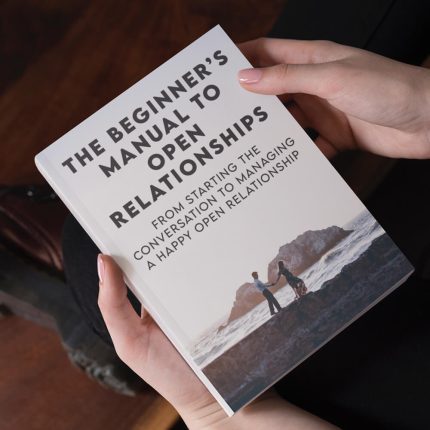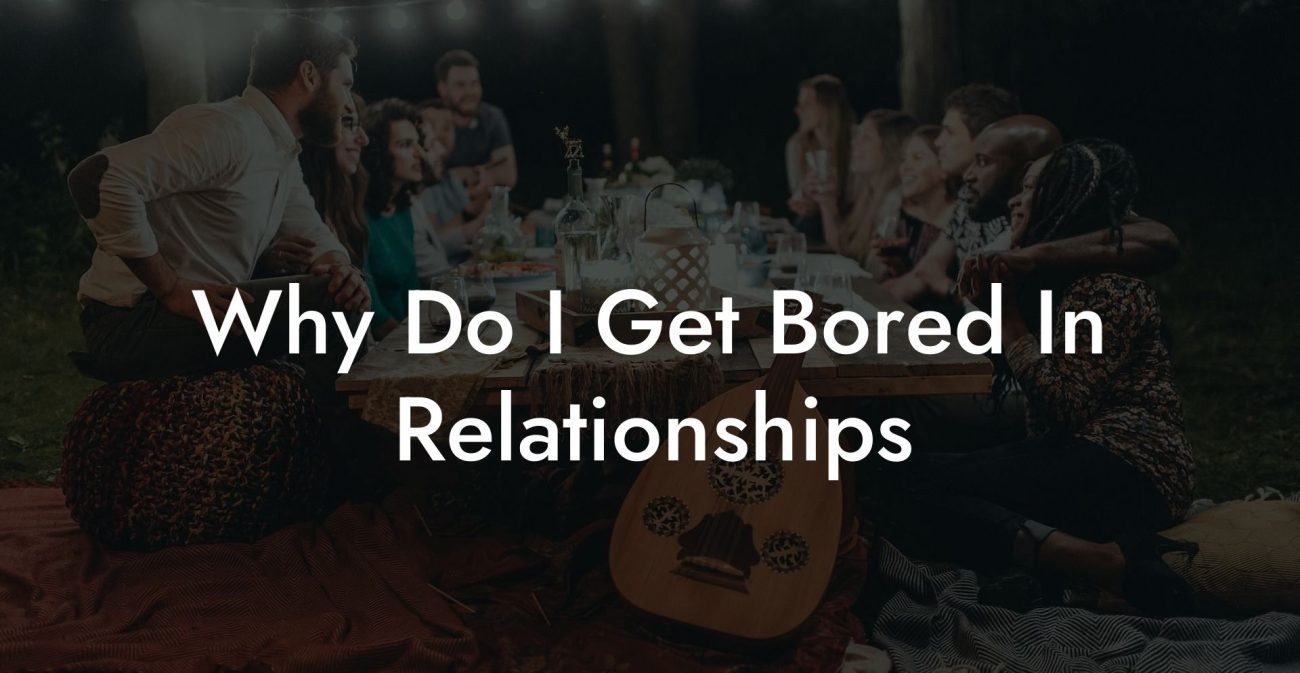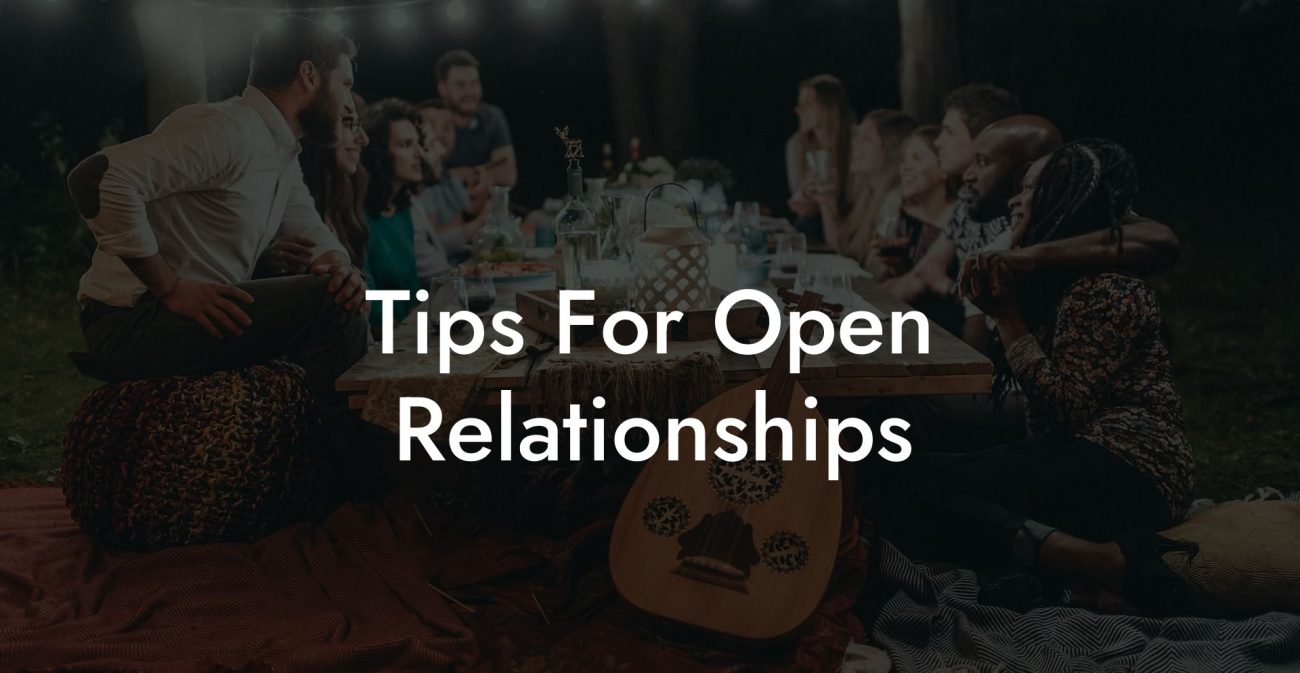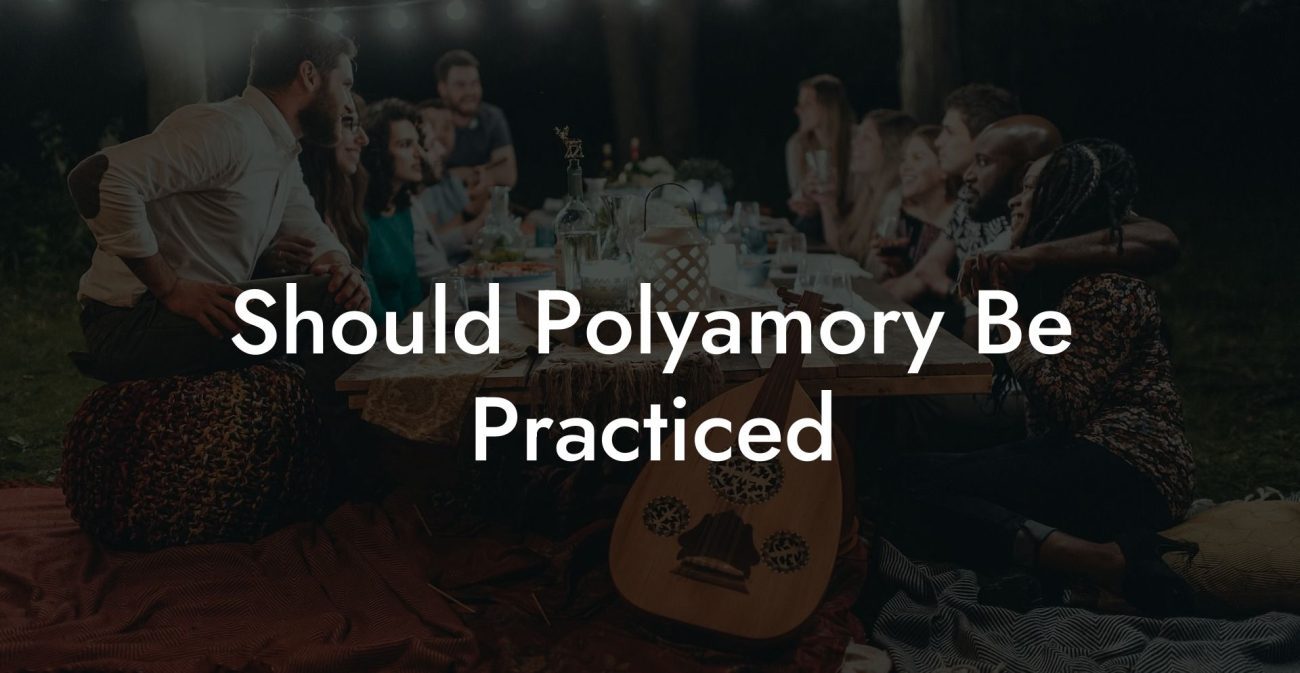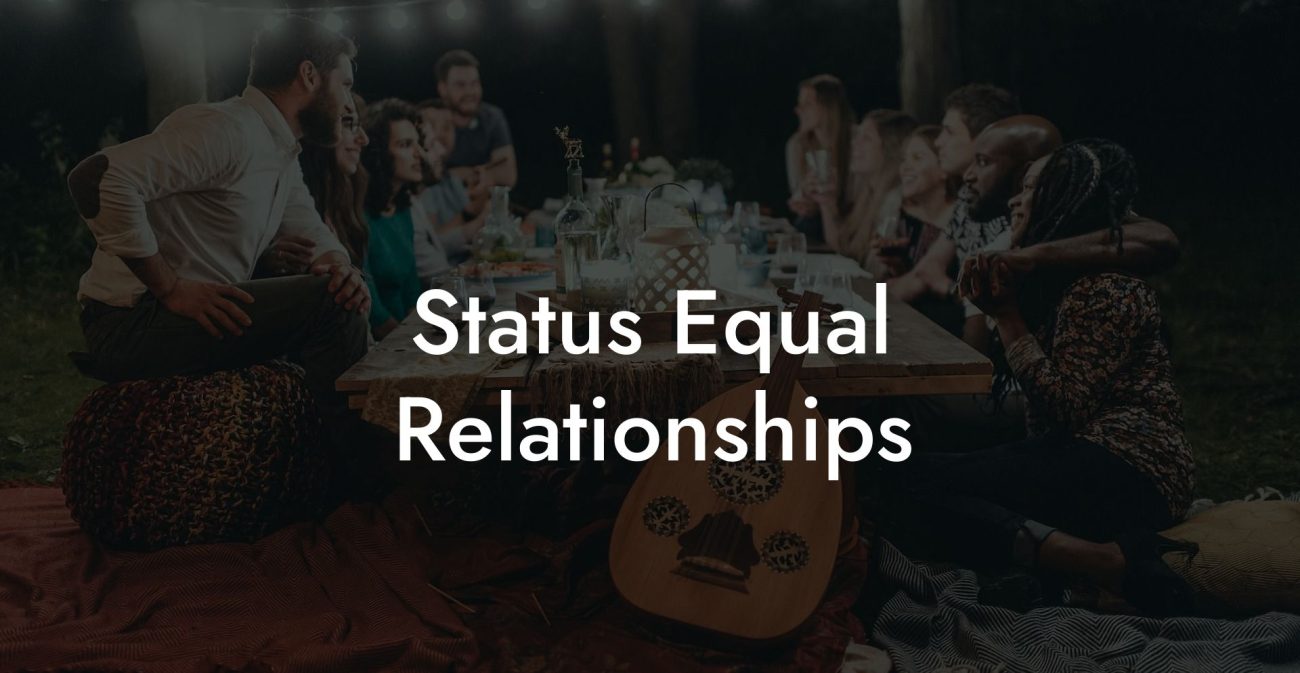Understanding Polygamous Relationships

Polygamous relationships, which can take various forms such as polygyny (one man with multiple wives) and polyandry (one woman with multiple husbands), offer a different framework for commitment, support, and intimacy compared to traditional monogamous unions. In this guide, we delve into the definition, historical context, cultural significance, legal and ethical considerations, and practical challenges of polygamous relationships, as well as strategies for managing and thriving within such arrangements.
Have you ever wondered if monogamy is just a stupid little experiment? Open relationships, polyamory, relationship anarchy...find out which relationship dynamic suits you best with our one minute relationship test. See if you are just conforming to "societal norms". Reveal your truth >>
Quick Links to Useful Sections
- What Is a Polygamous Relationship?
- Definition and Core Concepts
- Historical and Cultural Context
- Historical Roots
- Cultural Significance Today
- Legal and Ethical Considerations
- Legal Recognition and Challenges
- Ethical Considerations
- Psychological and Emotional Dynamics
- Emotional Complexity
- Psychological Benefits
- Psychological Challenges
- Strategies for Managing a Polygamous Relationship
- Enhance Communication
- Set Clear Boundaries
- Prioritize Self-Care and Personal Growth
- Build a Support Network
- Frequently Asked Questions (FAQ)
What Is a Polygamous Relationship?
Definition and Core Concepts
A polygamous relationship is a marital or committed arrangement in which an individual maintains simultaneous relationships with more than one spouse. This practice falls under the umbrella of consensual non-monogamy, though it is typically formalized through culturally or religiously recognized marriages. The two most common forms of polygamy are:
- Polygyny: One man married to multiple women.
- Polyandry: One woman married to multiple men.
In a polygamous relationship, all parties are generally expected to be aware of the arrangement, and the relationships are often governed by established cultural, religious, or familial norms. These relationships can provide a wide network of emotional, practical, and financial support, but they also come with unique challenges that require careful management.
Historical and Cultural Context
Historical Roots
Polygamous relationships have been practiced for thousands of years across many cultures. In agrarian societies, polygyny was often seen as a practical means to increase the workforce and consolidate family wealth. In regions where resources were scarce, such as parts of Tibet, Nepal, and India, polyandry (particularly fraternal polyandry, where a woman marries multiple brothers) was used to prevent the division of family property, ensuring economic stability.
Historically, polygamy was not merely a practical solution but also a social status symbol. In many cultures, the ability to maintain multiple marriages signified wealth, power, and prestige. Religious texts and customary laws in various traditions have provided frameworks that legitimized polygamous unions, embedding them deeply into the cultural and social fabric.
Cultural Significance Today
Today, the practice of polygamy is less common in Western societies, where monogamy is the legal norm and socially dominant model. However, in many parts of Africa, the Middle East, and Asia, polygamous relationships continue to be practiced and are often viewed as an integral part of cultural identity. In these communities, plural marriages are seen as a way to maintain family cohesion, share resources, and support communal living.
Despite legal and social challenges in some regions, there is a growing academic and cultural interest in understanding polygamous relationships as part of the broader conversation on relationship diversity and alternative family structures.
Legal and Ethical Considerations
Legal Recognition and Challenges
In most modern legal systems, marriage is defined as a union between two people. As a result, polygamous marriages are not legally recognized in many countries. This legal framework creates significant challenges for individuals in polygamous relationships, including issues related to:
EXPLORE OUR ETHICAL NON-MONOGAMY & OPEN RELATIONSHIP SHOP
👨💻👩💻 Digital Store (Instant Download)
🍆💦 Clothing Store (Worldwide Delivery Available)
Sharing Is Caring Unisex T-Shirt (Black)
$29.99Three Isn't a Crowd Unisex T-Shirt (White)
$29.99Sharing Is Caring Daddy Cap (Black)
$39.99It's Not Cheating If He Watches T-Shirt (Black)
$29.99I Love Watching Pop Art T-Shirt (Black)
$29.99I Love Watching Pop Art T-Shirt (White)
$29.99Three Isn't a Crowd Unisex T-Shirt (Black)
$29.99Real Men Share Pop Art T-Shirt (White)
$29.99Fuck Each Other Not The Planet Unisex T-Shirt (White)
$29.99Real Men Share Pop Art T-Shirt (Black)
$29.99Fuck Each Other Not The Planet Unisex T-Shirt (Black)
$29.99Multiple Lovers - Sharing Is Caring Unisex T-Shirt (Black)
$29.99- Inheritance and Property Rights: Without legal recognition, determining asset distribution and inheritance can be complex.
- Custody and Family Law: Legal disputes may arise over child custody and spousal benefits, as existing laws are designed for monogamous unions.
- Spousal Benefits: Access to benefits such as healthcare, social security, and tax advantages is often limited to legally recognized monogamous marriages.
In some cultures, customary or religious laws provide a degree of recognition for polygamous relationships, but these legal protections are not always consistent with national legal standards.
Ethical Considerations
Ethical polygamy is based on principles of informed consent, mutual respect, and transparent communication. For a polygamous relationship to be considered ethical, all parties must:
- Enter Voluntarily: Every partner should agree to the relationship structure without coercion.
- Communicate Openly: Honest, ongoing dialogue is essential to manage expectations, boundaries, and any emerging conflicts.
- Maintain Mutual Respect: Each partner’s needs, emotions, and individuality must be respected, ensuring that power dynamics are balanced.
- Ensure Equity: Efforts should be made to distribute responsibilities and benefits fairly among all partners.
Psychological and Emotional Dynamics
Emotional Complexity
Polygamous relationships often provide a diverse network of emotional support, but they also present unique emotional challenges. Managing multiple intimate connections can lead to:
- Jealousy: Even when all partners consent, feelings of jealousy and insecurity can arise and need to be addressed constructively.
- Time and Energy Management: Balancing the needs and demands of multiple relationships requires effective time management and prioritization.
- Interpersonal Conflict: Differences in expectations and communication styles can lead to conflicts that require ongoing negotiation and resolution.
Developing self-awareness, effective communication skills, and conflict resolution strategies is critical for maintaining harmony in a polygamous relationship.
Psychological Benefits
- Diverse Support: Multiple partners can offer varied forms of care, from emotional and intellectual support to practical assistance.
- Personal Growth: The challenges of managing complex relationships can lead to increased self-awareness, resilience, and improved interpersonal skills.
- Collaborative Living: Shared responsibilities can foster a sense of community and strengthen familial bonds.
Psychological Challenges
- Emotional Burnout: The effort required to maintain multiple relationships may lead to stress and fatigue if not managed carefully.
- Feelings of Neglect: Some partners may feel less prioritized if the vertex of the relationship (often the individual with multiple partners) does not evenly distribute attention and care.
- Social Isolation: Experiencing stigma or misunderstanding from broader society can negatively impact the emotional well-being of those in polygamous relationships.
Strategies for Managing a Polygamous Relationship
Enhance Communication
Open, honest, and continuous communication is the cornerstone of a healthy polygamous relationship. Consider implementing these strategies:
- Regular Check-Ins: Schedule one-on-one or group meetings to discuss feelings, boundaries, and any issues that arise.
- Active Listening: Use active listening techniques to ensure each partner feels heard and understood.
- Conflict Resolution: Establish clear methods for addressing disagreements, such as seeking mediation or counseling when necessary.
- Digital Tools: Utilize shared calendars or messaging apps to coordinate schedules and ensure transparency about commitments.
Set Clear Boundaries
Establishing and maintaining clear boundaries is crucial to prevent misunderstandings and protect each partner's emotional well-being. Effective boundary-setting includes:
- Defining Expectations: Clearly articulate what each relationship entails, including emotional, sexual, and practical dimensions.
- Negotiating Time: Agree on how much time and energy should be dedicated to each partner, ensuring that no one feels neglected.
- Documenting Agreements: Consider creating a written agreement that outlines these boundaries, which can be revisited and revised as needed.
Prioritize Self-Care and Personal Growth
Taking care of your physical, emotional, and mental health is vital when managing multiple relationships. To support your well-being:
- Engage in regular exercise, meditation, or other mindfulness practices to reduce stress.
- Dedicate time to hobbies and activities that promote personal growth and relaxation.
- Seek professional counseling or therapy if needed to manage complex emotions and build resilience.
Build a Support Network
Connecting with others who understand the dynamics of polygamous relationships can provide valuable insights and emotional support. Consider:
- Joining online forums or social media groups dedicated to consensual non-monogamy, such as r/polyamory.
- Attending local meet-ups or workshops focused on alternative relationship models.
- Engaging with community support groups where you can share experiences and gain practical advice.
Frequently Asked Questions (FAQ)
1. What is a polygamous relationship?
A polygamous relationship is a marital or committed arrangement in which an individual is involved with more than one spouse simultaneously, following cultural, religious, or personal agreements.
2. How does polygamy differ from monogamy?
In monogamy, the relationship is exclusive to two individuals. Polygamy, on the other hand, involves multiple marital bonds and typically includes arrangements such as polygyny or polyandry.
3. What are the benefits of polygamous relationships?
Benefits include a diverse support network, increased personal growth opportunities, collaborative resource sharing, and the ability to experience multiple forms of intimacy.
4. What challenges might arise in polygamous relationships?
Common challenges include managing jealousy, balancing time and emotional energy, handling complex communication among multiple partners, and dealing with legal and social stigma.
5. How can communication be improved in a polygamous relationship?
Effective communication can be improved by scheduling regular check-ins, practicing active listening, using "I" statements, and leveraging digital tools to coordinate schedules and share updates.
6. Where can I find additional resources on polygamous relationships?
Additional resources include books like "The Ethical Slut" by Dossie Easton & Janet Hardy and "More Than Two" by Franklin Veaux & Eve Rickert, podcasts such as "Multiamory" and "Polyamory Weekly," and online communities like r/polyamory.
Resources and Community Support: Your Next Steps
- "The Ethical Slut" by Dossie Easton & Janet Hardy – A seminal book exploring the principles of ethical non-monogamy and offering insights into managing polygamous relationships.
- "More Than Two" by Franklin Veaux & Eve Rickert – An in-depth guide providing practical advice on navigating the complexities of multiple relationships.
- Podcasts: Listen to "Multiamory" and "Polyamory Weekly" for engaging discussions and personal experiences about polygamous and non-monogamous relationships.
- Online Communities: Join forums like r/polyamory to exchange ideas and receive support from others.
- Workshops and Webinars: Attend events on relationship psychology and ethical non-monogamy to expand your knowledge and connect with like-minded individuals.
By exploring these resources and applying the strategies outlined in this guide, you can develop a clear and informed understanding of polygamous relationships and learn how to cultivate a healthy, balanced, and fulfilling network of relationships. Embrace continuous learning, open dialogue, and self-reflection as you navigate the diverse landscape of consensual non-monogamy.
EXPLORE OUR ETHICAL NON-MONOGAMY & OPEN RELATIONSHIP SHOP
👨💻👩💻 Digital Store (Instant Download)
🍆💦 Clothing Store (Worldwide Delivery Available)
Fuck Each Other Not The Planet Unisex T-Shirt (White)
$29.99Three Isn't a Crowd Unisex T-Shirt (Black)
$29.99Three Isn't a Crowd Unisex T-Shirt (White)
$29.99It's Not Cheating If He Watches T-Shirt (Black)
$29.99Real Men Share Pop Art T-Shirt (Black)
$29.99Sharing Is Caring Daddy Cap (Black)
$39.99I Love Watching Pop Art T-Shirt (Black)
$29.99Fuck Each Other Not The Planet Unisex T-Shirt (Black)
$29.99Real Men Share Pop Art T-Shirt (White)
$29.99I Love Watching Pop Art T-Shirt (White)
$29.99Multiple Lovers - Sharing Is Caring Unisex T-Shirt (Black)
$29.99Sharing Is Caring Unisex T-Shirt (Black)
$29.99Lost & confused by all of the terms, types and seemingly made up 3 letter acronyms?? We've got you. Check out our Ethnical Non-Monogamy Dictionary >>
Useful Interruption: Not sure which relationship vibe fits you best? Take our Relationship Test, it’ll give you the real insight into your natural relationship style. Then, dive into our binge-worthy guides (from the tried-and-true to the “wait, that’s a thing?”) and find the perfect relationship type for your life:
- Monogamy
- Open Relationships
- Ethical Non-Monogamy
- Solo Polyamory
- Non-Hierarchical Polyamory
- Hierarchical Polyamory
- Relationship Anarchy
- Swinging
Now back to the main article but yeah take the test...



